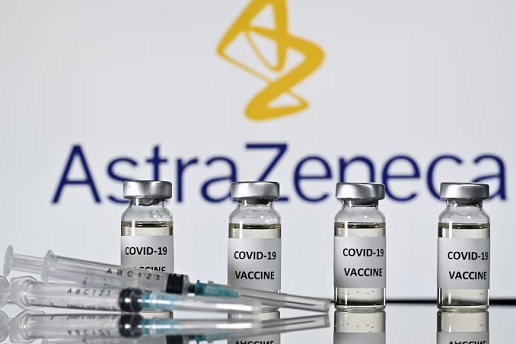London Doctors Warn That COVID 19 Vaccines Can Cause Adult-Onset Still’s Disease
Nikhil Prasad Fact checked by:Thailand Medical News Team Nov 12, 2024 5 months, 1 week, 2 days, 10 hours ago
Medical News: Researchers from St George’s Hospital London and St George’s University London have reported a compelling case of adult-onset Still’s disease (AOSD) possibly triggered by the AstraZeneca COVID-19 vaccine. This rare inflammatory condition, marked by fever, arthritis, and distinctive skin rashes, has garnered attention as it seems linked to environmental triggers like infections or vaccinations.
 London Doctors Warn That COVID 19 Vaccines Can Cause Adult-Onset Still’s Disease
Understanding Adult-Onset Still’s Disease (AOSD)
London Doctors Warn That COVID 19 Vaccines Can Cause Adult-Onset Still’s Disease
Understanding Adult-Onset Still’s Disease (AOSD)
AOSD is an uncommon inflammatory disease typically presenting with daily fever spikes, arthritis, and a salmon-pink rash. Symptoms may also include muscle pain, sore throat, loss of appetite, nausea, and weight loss. Diagnosing AOSD is challenging due to its rarity, varied symptoms, and lack of specific diagnostic tests. This
Medical News report highlights a unique case of AOSD potentially set off by COVID-19 vaccination, raising questions about how vaccines may influence the immune system in susceptible individuals.
The Case at a Glance
The patient, a 37-year-old woman, initially visited her doctor with a sore throat, fever, and muscle pain. Her history included depression, anxiety, and childhood tonsillitis, and she had recently returned from St. Lucia. Crucially, just two days before her symptoms began, she had received the AstraZeneca COVID-19 vaccine. When antibiotics failed to resolve her symptoms, further investigation showed raised inflammatory markers and a single episode of a rash, prompting referrals to several specialists.
Medical Journey and Diagnosis Delays
Her journey through the healthcare system was complicated by the rarity of her condition and the nonspecific nature of her symptoms. Initially, she was treated with antibiotics and steroids by an ENT team, but symptoms persisted. Infectious disease specialists ruled out infections and cancer as potential causes. However, it wasn’t until her third admission to the hospital, with symptoms persisting over months, that AOSD was considered as a diagnosis.
With guidance from rheumatology, tests like ferritin levels and a CT-PET scan indicated systemic inflammation. Ultimately, a lymph node biopsy confirmed an inflammatory response, and she was started on immunomodulating treatments. Her condition eventually stabilized with medications including methotrexate and anakinra, a targeted injection therapy.
Potential Link to COVID-19 Vaccination
Researchers noted that the patient’s symptoms appeared shortly after receiving the COVID-19 vaccine, raising questions about the possible role of the vaccine as a trigger for AOSD. While vaccines like the flu vaccine have been reported to precipitate autoimmune reactions in certain individuals, the exact mechanism remains unclear. Inflammatory diseases, including AOSD, may share pathogenic pathways with immune responses activated by vaccines. The spike protein of SARS-CoV-2, for example, is known to s
timulate immune signaling pathways that could potentially trigger cytokine release, leading to inflammatory reactions.
Managing a Rare Condition
The patient’s delayed diagnosis and eventual management underscore the complexity of diagnosing rare autoimmune diseases like AOSD. There is no specific test for AOSD; raised ferritin levels may indicate an inflammatory response, but it is not routinely tested during initial consultations. The involvement of multiple medical teams - from ENT and infectious disease to rheumatology - highlights the need for collaborative care and specialized knowledge to identify and treat such conditions effectively.
The delay in treatment also illustrates the importance of including AOSD in differential diagnoses, particularly in patients presenting with fever, rash, and joint symptoms after possible immune triggers like vaccinations. Early steroid treatment, as received by the patient, can help alleviate symptoms, but AOSD often requires long-term immunomodulating therapies to control disease activity.
Key Takeaways from the Case Study
The case study emphasizes the need for greater awareness of AOSD among medical professionals, especially given the challenges in diagnosing the disease due to its nonspecific presentation. This patient’s experience suggests several points for improvement in care and diagnosis, including:
-Rapid Multidisciplinary Involvement: Prompt referrals to relevant specialties, including rheumatology, can expedite diagnosis.
-Increased Awareness of AOSD Symptoms: Recognizing the unique triad of fever, rash, and arthritis can help clinicians suspect AOSD sooner.
-Vaccination and Immune System Monitoring: Although vaccines are claimed to be safe and ‘effective’ for most people, some individuals may experience autoimmune responses, warranting further research into this phenomenon.
Conclusions and Future Implications
The findings of this case indicate a possible association between COVID-19 vaccination and the onset of AOSD, although causation cannot be firmly established. This instance reflects a broader need for vigilance in monitoring potential side effects in rare inflammatory diseases. Future studies may help elucidate the mechanisms by which vaccines could act as immune triggers in susceptible individuals.
This case study also highlights the need for new treatment options for AOSD. Current therapies are limited, and there is a lack of randomized controlled trials, making treatment decisions complex and largely based on clinical experience and case reports.
The study findings were published in the peer-reviewed journal: Rheumatology Advances in Practice.
https://academic.oup.com/rheumap/article/8/Supplement_1/rkae117.040/7829529
For the latest COVID-19 News, keep on logging to Thailand
Medical News.
Read Also:
https://www.thailandmedical.news/news/south-korean-preprint-study-five-months-ago-warns-that-covid-19-mrna-vaccines-can-cause-a-variety-of-blood-disorders-including-aplastic-anemia
https://www.thailandmedical.news/news/covid-19-mrna-jabs-can-cause-an-array-of-rare-pituitary-disorders-including-hypophysitis,-pituitary-apoplexy-and-even-enlarge-pituitary-adenomas
https://www.thailandmedical.news/news/covid-19-vaccines-causes-persistence-of-spike-protein-in-the-cd16-monocytes-and-makes-sars-cov-2-negative-people-sick-with-pasc-like-sickness
https://www.thailandmedical.news/news/doctors-warn-covid-19-mrna-jabs-can-cause-primary-cutaneous-cd4-small-medium-t-cell-lymphoproliferative-disorders-and-cutaneous-lymphomas
